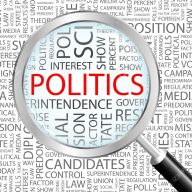SOURCES: BBC
Back in October, ThePoliticsView published an article outlining most of the major political news that occurred in September and October 2016.
In terms of the UK perspective, it outlined how former UKIP leader Diane James had resigned, triggering a new leadership election for the party to occur. It turns out the new leader voted in was Paul Nuttall, UKIP MEP for the North West of England. He now will contest in February’s Stoke Central by-election after it was triggered by the labour party following the resignation of former labour MP Tristram Hunt.
It also stated that Jeremy Corbyn had won the leadership election for Labour, beating contestant Owen Smith to hold his spot as The Labour Party leader. Tristram Hunt was a known critic of Corbyn, hence partly why he resigned, as well as former Copeland MP Jamie Reed who’s resignation has triggered a by-election in Copeland on the same day as Stoke Central, 23rd February.
The Liberal Democrats have shown a resurgence of late winning multiple council elections and the Parliamentary by-election in Richmond where new MP Sarah Olney beat former Conservative MP, turned Independent Zac Goldsmith over the Heathrow Expansion row. They are clearly aiming to appeal to remain voters after constantly addressing the issues of leaving the EU and critiquing the Conservative Governments Brexit plans.
But how has the following come to fruition?
Simply, you could argue one word has created this change. Brexit.
The country voted for Brexit on June 23rd, and despite numerous of stories and attempts for a Veto on Brexit; including a high court lawsuit against the Government to allow a Parliamentary vote on Article 50, it’s happening sooner than later.
The September/October summary also expanded on how Prime Minister Theresa May has promised Brexit will happen by March 2017. This is now inevitably going to happen sometime in late March, early April time.
Article 50 will be triggered and the UK is leaving the EU.
Theresa May has stated already that the UK must leave the single market, tighten immigration into the UK and be a world leader in free-trade.
She has also proclaimed that the two+ year process that Article 50 gives towards leaving the EU, will be heavily negotiated to put the UK first.
She now wants free-trade trade deals for the UK across the globe with other nations as a consequence of leaving the single market the EU allows access members to.
This all sounds rather promising and encouraging despite what critics say. Some say it’s easier said than done, some say it can be done, but it won’t be easy.
It for sure won’t be easy. The UK will now have to intensely lobby the EU to allow the UK to leave with as many benefits as possible. The reason it will be tough, is due to the so-called bureaucracy and stubbornness the EU has in place and the fact they won’t let the UK have to many benefits from Brexit, in case other eurosceptic nations follow suit to a Brexit in there own way.
This is why the UK is accepting it has to leave the single market. There is little to no chance of keeping free market status, if the UK is wanting to stop the freedom of movement into the State. That is a simple fact.
So what will the UK hope to look like post Brexit come 2018/2019 or beyond? In summary:
- The UK will be officially independent and out of the EU.
- The freedom of movement into the UK will be stopped.
- The UK will be out of the Single Market.
- The UK will begin or expand on free-trade deals globally.
- The UK will begin to open trade deals with the EU states, hoping to be Tariff and Tax free.
- The UK will prepare for the 2020 General Election.
That is a basic summary of what the UK will want to look like according to the Prime Minister Theresa May. Will this be the case? It’s very difficult to say. But optimism is essential and the Government will need to go into talks with the EU representing not only the people who voted to leave, but the people who wanted to remain also.
This is going to be the one of the most difficult and uncertain times in UK political history, especially since the 1st and 2nd World War’s.
Not only that, but the UK itself finds themselves in a battle to keep itself together, especially after Scotland’s Leader Nicola Sturgeon is undoubtably going to attempt to trigger another Scottish Independence Referendum before the new decade, after their access to the free-market will be stopped.
Turbulence is undoubtedly expected, but as stated, the UK will leave the EU in some form.
The question is, how do you think the UK will get on both during negotiations, and post negotiations with the EU?
Will we acquire good trade deals globally?
Will Scotland become independent?
Will the Conservatives win the 2020 General Election?
Will UKIP be relevant over the next 4-5 years?
Comment your views on Brexit, the UK, UK parties during the Brexit process and a possible Scottish Referendum below


